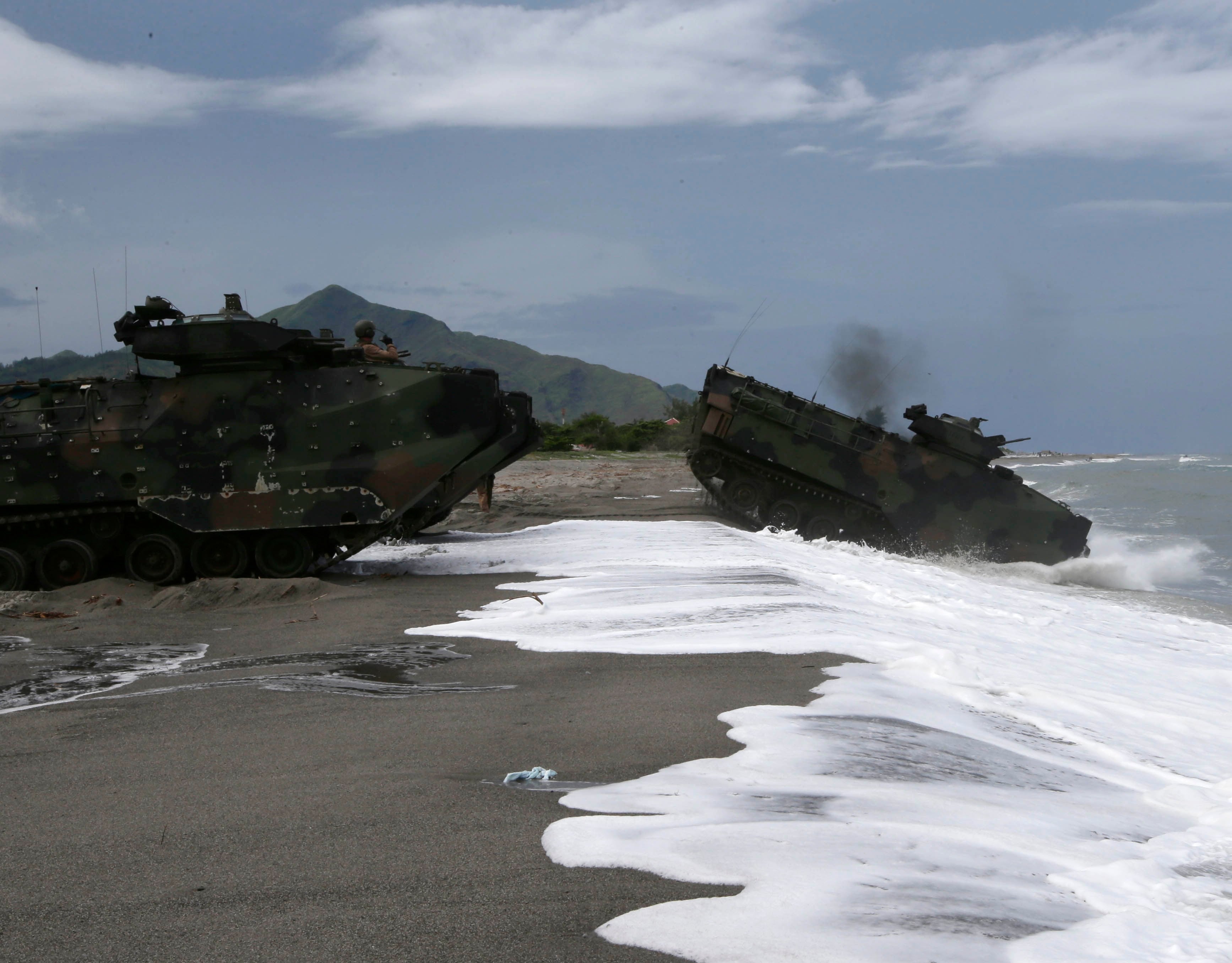ABOARD THE USS CARL VINSON -- The U.S. will seek to "sharpen our military edge" in the Pacific even as it hopes China will improve relations with its neighbors, Defense Secretary Ash Carter said Thursday.
As a result, Carter today announced what he described as a "third wave" of the Obama administration's rebalance to the Pacific, commonly referred to as the "Pacific Pivot."
As he has in every speech focused on the Pacific since taking over as secretary, Carter attempted to thread the needle between criticizing China for its aggressiveness in the South China Sea while holding out a hand towards the Asian power.
"Everyone gets a voice [in the region], and no one is excluded -- and by the way, that includes China, and its military, and we hope China doesn't exclude itself," Carter said in prepared remarks. Defense News is travelling with Carter this week as he heads to a meeting of the defense ministers from the ASEAN nations.
"The United States still has serious concerns with some of China's recent actions on the seas, in cyberspace, and elsewhere," Carter added. "Beijing sometimes appears to want to pick and choose which principles it wants to benefit from and which it prefers to try to undercut."
Carter added that many of the regional military exercises already planned for the Pacific will "grow more frequent and complex," without sharing details.
Finally, Carter hopes to see a new focus on working with regional nations to develop new cyber capabilities.
"Because the network is so rich with nations with cyber expertise, including Japan, Korea, India, and Singapore, as each of our countries develop their cyber capabilities, we can learn from each other and cooperate together in this important domain," Carter said.
At the core of U.S. plans for the region is a network of partner nations able to operate together, both from a technological standpoint and from a doctrinal one.

U.S. Navy AAVs (Amphibious Assault Vehicle) maneuver in the water facing the South China Sea during the 20th Cooperation Afloat Readiness And Training (CARAT) joint naval exercise with Philippine Navy, June 30, 2014, at the Naval Education and Training Center at San Antonio township
Photo Credit: Bullit Marquez/AP
"After a future typhoon, we may see an Australian P-8 with Singaporean personnel aboard coordinate with an American destroyer in search and rescue operations," Carter said. "And freedom of navigation may also be upheld, in part, by joint – and networked – patrols, as networked navies and air forces fly, sail, and operate together everywhere that international law allows, to ensure the region’s waterways remain safe and open."
The speech also provided an opportunity for Carter to stump for the Trans-Pacific Partnership trade agreement, an Obama administration initiative that faces major political hurdles, both in Congress and from the presidential candidates running for election in November.
"TPP is an opportunity the region and the United States cannot afford to miss," the secretary said.
Aaron Mehta was deputy editor and senior Pentagon correspondent for Defense News, covering policy, strategy and acquisition at the highest levels of the Defense Department and its international partners.



